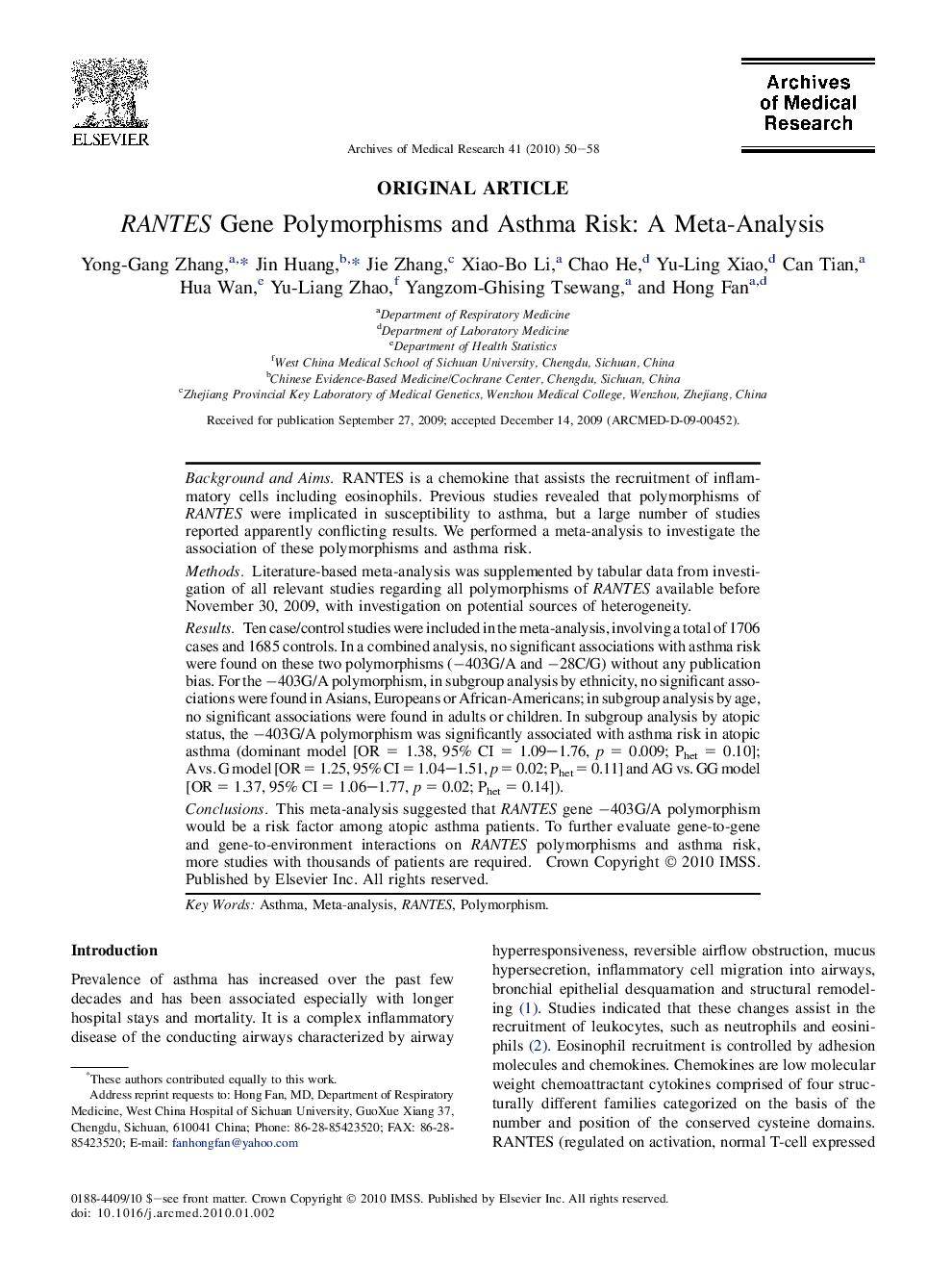| Article ID | Journal | Published Year | Pages | File Type |
|---|---|---|---|---|
| 3447370 | Archives of Medical Research | 2010 | 9 Pages |
Background and AimsRANTES is a chemokine that assists the recruitment of inflammatory cells including eosinophils. Previous studies revealed that polymorphisms of RANTES were implicated in susceptibility to asthma, but a large number of studies reported apparently conflicting results. We performed a meta-analysis to investigate the association of these polymorphisms and asthma risk.MethodsLiterature-based meta-analysis was supplemented by tabular data from investigation of all relevant studies regarding all polymorphisms of RANTES available before November 30, 2009, with investigation on potential sources of heterogeneity.ResultsTen case/control studies were included in the meta-analysis, involving a total of 1706 cases and 1685 controls. In a combined analysis, no significant associations with asthma risk were found on these two polymorphisms (−403G/A and −28C/G) without any publication bias. For the −403G/A polymorphism, in subgroup analysis by ethnicity, no significant associations were found in Asians, Europeans or African-Americans; in subgroup analysis by age, no significant associations were found in adults or children. In subgroup analysis by atopic status, the −403G/A polymorphism was significantly associated with asthma risk in atopic asthma (dominant model [OR = 1.38, 95% CI = 1.09–1.76, p = 0.009; Phet = 0.10]; A vs. G model [OR = 1.25, 95% CI = 1.04–1.51, p = 0.02; Phet = 0.11] and AG vs. GG model [OR = 1.37, 95% CI = 1.06–1.77, p = 0.02; Phet = 0.14]).ConclusionsThis meta-analysis suggested that RANTES gene −403G/A polymorphism would be a risk factor among atopic asthma patients. To further evaluate gene-to-gene and gene-to-environment interactions on RANTES polymorphisms and asthma risk, more studies with thousands of patients are required.
